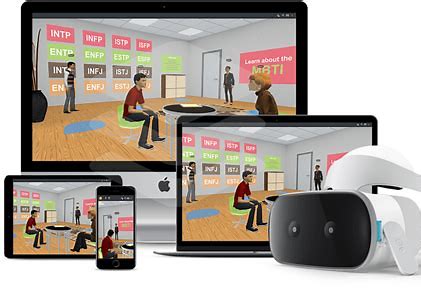LMS VR: The Future of Learning and Development
Introduction
Virtual Reality (VR) technology has been making waves in various industries, from gaming and entertainment to healthcare and education. The potential of VR to revolutionize the learning and development (L&D) landscape is immense, as it offers a more immersive, engaging, and effective learning experience. In this article, we will explore the benefits and challenges of using VR in Learning Management Systems (LMS), and how it can transform the way we learn and develop.
Benefits of LMS VR
1. Immersive Learning Experience
VR technology allows learners to immerse themselves in a simulated environment, which can be more engaging and effective than traditional classroom learning. VR simulations can replicate real-life scenarios, allowing learners to practice and apply their skills in a safe and controlled environment. This can help learners to develop confidence, competence, and critical thinking skills.
2. Cost-Effective and Time-Saving
VR simulations can be used to replace traditional classroom training, which can be expensive and time-consuming. VR simulations can be accessed from anywhere, at any time, making it more convenient for learners to complete their training. This can also help organizations to save money on travel, accommodation, and training materials.
3. Personalized Learning
VR simulations can be customized to meet the specific needs of learners, based on their learning styles, preferences, and abilities. This can help learners to learn at their own pace, and to focus on the areas where they need the most help. This can also help organizations to provide a more personalized learning experience, which can improve learner engagement and satisfaction.
4. Safe and Risk-Free Learning
VR simulations can be used to replicate high-risk or dangerous scenarios, allowing learners to practice and apply their skills in a safe and controlled environment. This can help learners to develop the necessary skills and confidence to handle real-life situations, without putting themselves or others at risk.
Challenges of LMS VR
1. High Cost of Development
The development of VR simulations can be expensive, as it requires specialized skills and equipment. This can make it difficult for small and medium-sized organizations to adopt VR technology in their LMS.
2. Technical Requirements
VR simulations require high-performance computers, head-mounted displays (HMDs), and other specialized equipment, which can be expensive and difficult to maintain. This can make it challenging for organizations to provide VR simulations to their learners, especially if they have a large number of learners in remote locations.
3. Limited Content Availability
The availability of VR simulations is still limited, as the technology is relatively new and expensive to develop. This can make it challenging for organizations to find VR simulations that meet their specific needs, and to ensure that their learners have access to a wide range of content.
4. Motion Sickness
Some learners may experience motion sickness or discomfort when using VR simulations, which can affect their learning experience and engagement. This can also make it challenging for organizations to ensure that their learners have a positive and effective learning experience.
Conclusion
LMS VR has the potential to revolutionize the learning and development landscape, by providing a more immersive, engaging, and effective learning experience. The benefits of LMS VR, such as immersive learning, cost-effectiveness, personalization, and safety, are significant, and can help organizations to improve learner engagement, satisfaction, and performance. However, the challenges of LMS VR, such as high cost of development, technical requirements, limited content availability, and motion sickness, must be addressed to ensure that VR technology is accessible and effective for all learners. As the technology continues to evolve and mature, we can expect to see more innovative and effective uses of VR in LMS, which will transform the way we learn and develop.

